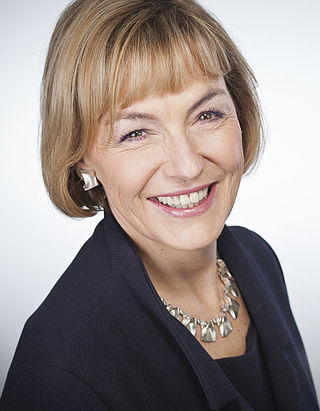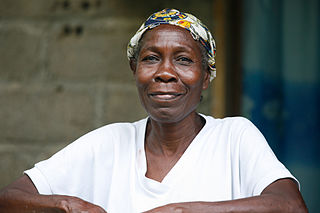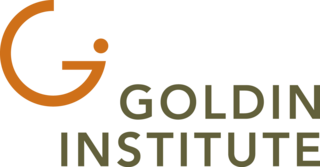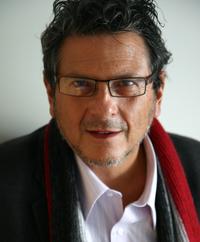
Peacekeeping comprises activities, especially military ones, intended to create conditions that favor lasting peace. Research generally finds that peacekeeping reduces civilian and battlefield deaths, as well as reduces the risk of renewed warfare.

Danilo Türk is a Slovenian diplomat, professor of international law, human rights expert, and political figure who served as President of Slovenia from 2007 to 2012. He was the first Slovene ambassador to the United Nations, from 1992 to 2000, and was the UN Assistant Secretary General for Political Affairs from 2000 to 2005.
Reproductive rights are legal rights and freedoms relating to reproduction and reproductive health that vary amongst countries around the world. The World Health Organization defines reproductive rights as follows:
Reproductive rights rest on the recognition of the basic right of all couples and individuals to decide freely and responsibly the number, spacing and timing of their children and to have the information and means to do so, and the right to attain the highest standard of sexual and reproductive health. They also include the right of all to make decisions concerning reproduction free of discrimination, coercion and violence.
Marital rape or spousal rape is the act of sexual intercourse with one's spouse without the spouse's consent. The lack of consent is the essential element and doesn't always involve physical violence. Marital rape is considered a form of domestic violence and sexual abuse. Although, historically, sexual intercourse within marriage was regarded as a right of spouses, engaging in the act without the spouse's consent is now widely classified as rape by many societies around the world, and increasingly criminalized. However it is repudiated by some more conservative cultures.

Vesna Pusić is a Croatian sociologist and politician who served as First Deputy Prime Minister and Minister of Foreign and European Affairs in the centre-left cabinet of Zoran Milanović. She was Croatia's second female Foreign Minister taking the office after Kolinda Grabar-Kitarović. She is known as an outspoken liberal and an advocate of European integration, anti-fascism, gender equality and LGBT rights.

The United Nations Stabilisation Mission in Haiti, also known as MINUSTAH, an acronym of its French name, was a UN peacekeeping mission in Haiti from 2004 to 2017. It was composed of 2,366 military personnel and 2,533 police, supported by international civilian personnel, a local civilian staff, and United Nations Volunteers. The mission's military component was led by the Brazilian Army and commanded by a Brazilian.
Statistics on rape and other acts of sexual assault are commonly available in industrialized countries, and have become better documented throughout the world. Inconsistent definitions of rape, different rates of reporting, recording, prosecution and conviction for rape can create controversial statistical disparities, and lead to accusations that many rape statistics are unreliable or misleading.

Philip Geoffrey Alston is an Australian international law scholar and human rights practitioner. He is John Norton Pomeroy Professor of Law at New York University School of Law, and co-chair of the law school's Center for Human Rights and Global Justice. In human rights law, Alston has held a range of senior UN appointments for over two decades, including United Nations Special Rapporteur on extrajudicial, summary or arbitrary executions, a position he held from August 2004 to July 2010, and UN Special Rapporteur on extreme poverty and human rights from 2014-2020.

Mario Joseph is a Haitian human rights lawyer. Since 1996, he has led the Bureau des Avocats Internationaux (BAI) in Port-au-Prince, which represents political prisoners, impoverished communities, and victims of political violence. In 2006, The New York Times called Joseph "Haiti's most prominent human rights lawyer".
Corrective rape, also called curative rape or homophobic rape, is a hate crime in which somebody is raped because of their perceived sexual orientation. The common intended consequence of the rape, as claimed by the perpetrator, is to turn the person heterosexual.

Women in Haiti have equal constitutional rights as men in the economic, political, cultural and social fields, as well as in the family.
Crime in Haiti is investigated by the Haitian police. Since the late 2010s, the country has suffered from widespread gang warfare and civil unrest, including a massive prison breakout in 2024. It also suffers from extreme corruption and high levels of sexual violence.
Brian Concannon, Jr. is an American human rights lawyer and foreign policy advocate. He is the Executive Director of the Institute for Justice & Democracy in Haiti (IJDH), which he co-founded in 2004. Concannon also serves as a member of the Editorial Board of Health and Human Rights: An International Journal at the Harvard School of Public Health, and is a contributor to the Quincy Institute for Responsible Statecraft blog. He is an alumnus of Boston College High School'81, as well as an Ignatius Award winner. He holds an undergraduate degree from Middlebury College and JD from Georgetown Law. He is the recipient of the Wasserstein Public Interest Fellowship from Harvard Law School the Brandeis International Fellowship in Human Rights, Intervention, and International Law and an Honorary Doctorate of Humane Letters from Canisius College. Brian has qualified as an expert witness on country conditions Haiti in over 40 cases in the U.S. and Canada, appearing on behalf of both applicants and the U.S. government.

The 2010s Haiti cholera outbreak was the first modern large-scale outbreak of cholera—a disease once considered beaten back largely due to the invention of modern sanitation. The disease was reintroduced to Haiti in October 2010, not long after the disastrous earthquake earlier that year, and since then cholera has spread across the country and become endemic, causing high levels of both morbidity and mortality. Nearly 800,000 Haitians have been infected by cholera, and more than 9,000 have died, according to the United Nations (UN). Cholera transmission in Haiti today is largely a function of eradication efforts including WASH, education, oral vaccination, and climate variability. Early efforts were made to cover up the source of the epidemic, but thanks largely to the investigations of journalist Jonathan M. Katz and epidemiologist Renaud Piarroux, it is widely believed to be the result of contamination by infected United Nations peacekeepers deployed from Nepal. In terms of total infections, the outbreak has since been surpassed by the war-fueled 2016–2021 Yemen cholera outbreak, although the Haiti outbreak is still one of the most deadly modern outbreaks. After a three-year hiatus, new cholera cases reappeared in October 2022.

The Goldin Institute is a non-profit organization based in Chicago, Illinois, US, that works directly with communities around the globe to create their own strategies and solutions to issues such as poverty alleviation, environmental sustainability, gender empowerment and conflict resolution.
Jonathan Myerson Katz is an American journalist and author known for his reporting on the 2010 Haiti earthquake and the role of the United Nations in the ensuing cholera outbreak.

Reed Brody is a Hungarian-American human rights lawyer and prosecutor. He specializes in helping victims pursue abusive leaders for atrocities, and has gained fame as the "Dictator Hunter". He was counsel for the victims in the case of the exiled former dictator of Chad, Hissène Habré – who was convicted of crimes against humanity in Senegal – and has worked with the victims of Augusto Pinochet and Jean-Claude “Baby Doc” Duvalier. He currently works with victims of the former dictator of Gambia, Yahya Jammeh, is a lawyer for the ousted president of Niger Mohamed Bazoum and is a member of the United Nations Group of Human Rights Experts on Nicaragua. He is the author of several books including To Catch a Dictator: The Pursuit and Trial of Hissène Habré (2022).
Sexual violence in Haiti is a common phenomenon today, making it a public health problem. Being raped is considered shameful in Haitian society, and victims may find themselves abandoned by loved ones or with reduced marriageability. Until 2005, rape was not legally considered a serious crime and a rapist could avoid jail by marrying his victim. Reporting a rape to police in Haiti is a difficult and convoluted process, a factor that contributes to underreporting and difficulty in obtaining accurate statistics about sexual violence. Few rapists face any punishment.

Violence against women in Guatemala reached severe levels during the long-running Guatemalan Civil War (1960-1996), and the continuing impact of that conflict has contributed to the present high levels of violence against women in that nation. During the armed conflict, rape was used as a weapon of war.
Malya Villard-Appolon is a Haitian activist for women's rights and domestic violence prevention. She is the cofounder of the Commission of Women Victims for Victims (KOFAVIV), an organization that provides services and support to victims of violence against women in Haiti.










